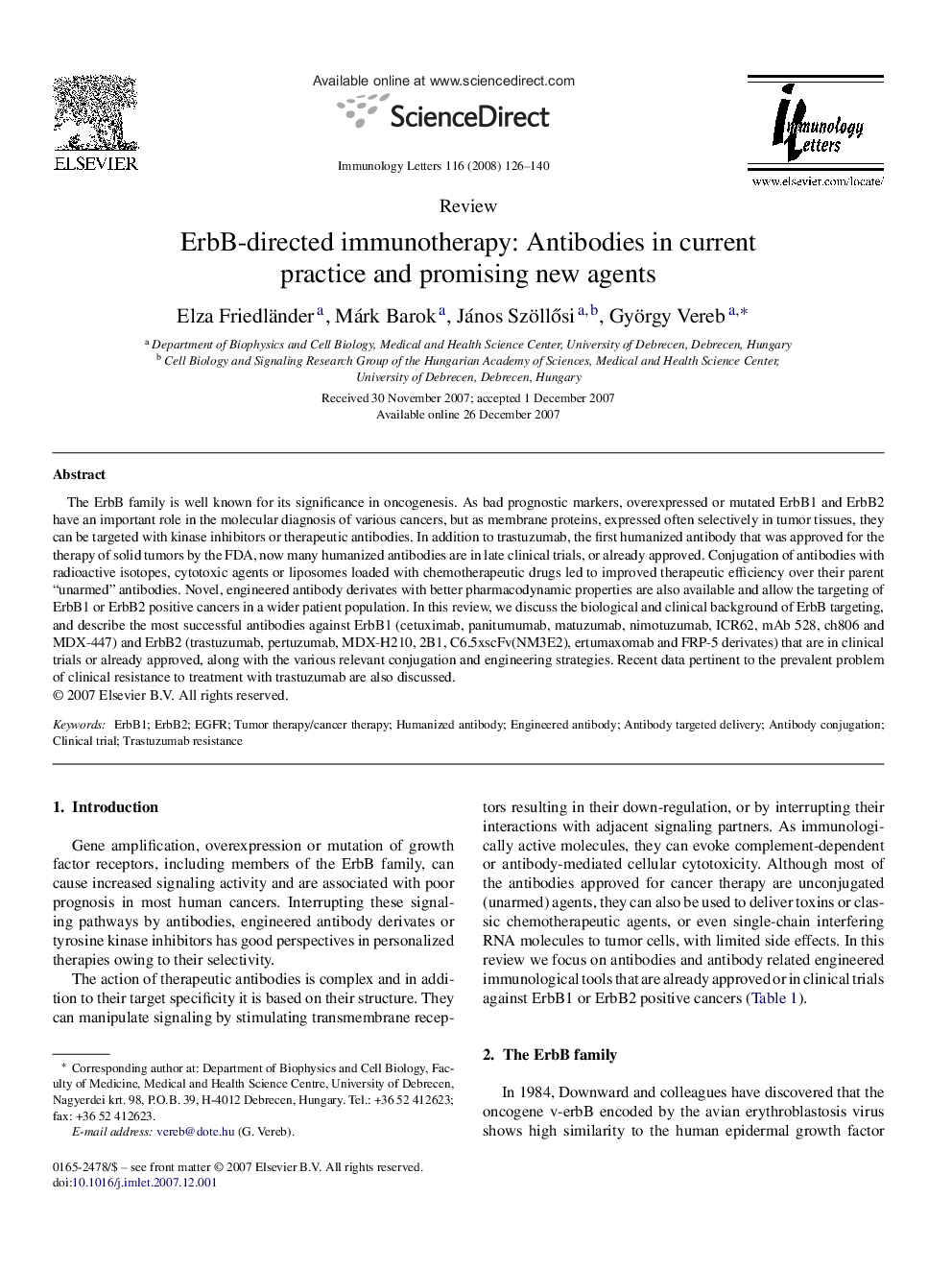| Article ID | Journal | Published Year | Pages | File Type |
|---|---|---|---|---|
| 3356197 | Immunology Letters | 2008 | 15 Pages |
The ErbB family is well known for its significance in oncogenesis. As bad prognostic markers, overexpressed or mutated ErbB1 and ErbB2 have an important role in the molecular diagnosis of various cancers, but as membrane proteins, expressed often selectively in tumor tissues, they can be targeted with kinase inhibitors or therapeutic antibodies. In addition to trastuzumab, the first humanized antibody that was approved for the therapy of solid tumors by the FDA, now many humanized antibodies are in late clinical trials, or already approved. Conjugation of antibodies with radioactive isotopes, cytotoxic agents or liposomes loaded with chemotherapeutic drugs led to improved therapeutic efficiency over their parent “unarmed” antibodies. Novel, engineered antibody derivates with better pharmacodynamic properties are also available and allow the targeting of ErbB1 or ErbB2 positive cancers in a wider patient population. In this review, we discuss the biological and clinical background of ErbB targeting, and describe the most successful antibodies against ErbB1 (cetuximab, panitumumab, matuzumab, nimotuzumab, ICR62, mAb 528, ch806 and MDX-447) and ErbB2 (trastuzumab, pertuzumab, MDX-H210, 2B1, C6.5xscFv(NM3E2), ertumaxomab and FRP-5 derivates) that are in clinical trials or already approved, along with the various relevant conjugation and engineering strategies. Recent data pertinent to the prevalent problem of clinical resistance to treatment with trastuzumab are also discussed.
